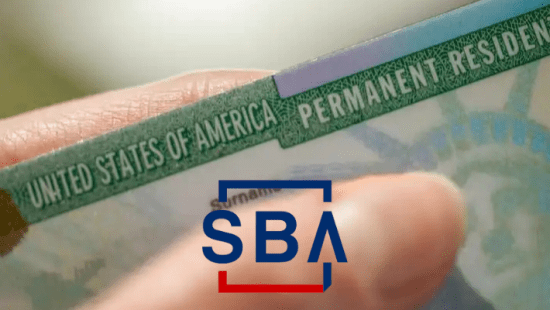ICE agents are breaking the law every day; they feel powerful and untouchable. They hit women, lash detainees, break car windows, break into houses by force, enter businesses without a warrant, and roam the cities without respecting any laws.
They are federal agents—they have authorization, they say. Neither local police, elected officials, nor other authorities are able to stop them.
They hide their faces, masked, most without identification. It is unclear whether they themselves are criminals, as the FBI recently announced.
So, why aren’t they being stopped or held accountable?
One possible answer is that the Trump administration itself seeks to terrorize the population. Its “employees” amplify that rhetoric and move through cities like the Wild West, imposing their supposed authority and their right to act without regard for the law.
Another possible explanation is the Supreme Court’s decision, where the majority of justices, Republican and pro-Trump, validated that federal agents could exercise their authority to detain anyone suspected of being an undocumented immigrant.
Few local authorities have been able to resist. Communities have protested, but those efforts have been in vain. Simply touching an agent could result in arrest; interfering in an operation could also lead to jail time.
So, how do you stop them? How do you make them understand that, legally, they would be exposed to the law if caught breaking it?
These are the codes of ethics that govern their work, which, obviously, they are not following.
Core values and principles
Honor, Service, Integrity: Agents are expected to perform their duties with dignity and honor, serve the nation proudly, and exemplify the highest ethical and moral standards.
Professionalism: All employees must conduct themselves in a professional and business-like manner, both on and off-duty, and adhere to all applicable policies, statutes, and regulations.
Integrity and Professional Conduct: Employees must maintain the highest standards of integrity and professionalism, refraining from any conduct that could compromise their own or the agency’s reputation.
Do ICE officers really have ‘federal immunity’ in the US?
Deputy White House Chief of Staff Stephen Miller has told Immigration and Customs Enforcement agents they are legally protected from prosecution and local officials cannot arrest them.
Fox News host Will Cain questioned Miller during an October 24 interview. Illinois Governor JB Pritzker, Cain said, “talked about interfering with, arresting, ICE agents in Illinois”.
Cain asked Miller under what federal authority the Trump administration could arrest Pritzker if the governor tried to arrest ICE agents.
“To all ICE officers, you have federal immunity in the conduct of your duties,” Miller said. “And anybody who lays a hand on you or tries to stop you or tries to obstruct you is committing a felony.”
Miller said his answer applied to any local or state official “who conspires or engages in activity that unlawfully impedes federal law enforcement conducting their duties”.
Pritzker acknowledged in an October 16 interview that “federal agents typically have federal immunity, but they’re not immune from the federal government holding them accountable and responsible”.
His statement is less sweeping than Miller’s, and Pritzker noted that the federal government can prosecute federal agents.
Immigration agents, like other law enforcement officers, have broad protections when conducting official duties. That doesn’t mean they can’t be held legally accountable if they break state or federal law.
“Federal officials are not categorically immune from state criminal prosecution, even while on duty,” Bryna Godar, a lawyer at the University of Wisconsin’s State Democracy Research Initiative, wrote in a July 17 report.
When contacted for comment, the White House pointed PolitiFact to an October 23 letter that US Deputy Attorney General Todd Blanche wrote to California officials.
“The Department of Justice views any arrests of federal agents and officers in the performance of their official duties as both illegal and futile,” Blanche wrote.
He cited several federal laws and provisions, including the US Constitution’s Supremacy Clause. The clause limits when states can prosecute federal agents who break state law, but it does not act as blanket immunity, legal experts said.
Miller’s statement is “wrong on its face”, Steve Vladeck, a Georgetown University constitutional law professor, wrote in his October 27 newsletter.
Federal immigration agents can’t break the law with impunity.
In 2024, a federal judge convicted and sentenced to federal prison a US Customs and Border Protection agent for using excessive force against two people at the southern border. Department of Homeland Security watchdog officers investigated the case.
The federal government has cited its power to hold agents accountable in court arguments. After a Border Patrol agent shot and killed a 15-year-old Mexican boy at the southern border in 2010, the Justice Department said in a 2019 Supreme Court brief that the federal government investigates allegations of excessive force by agents “and may bring a federal criminal prosecution where appropriate”.
Non-government organizations can also sue the federal government for its agents’ actions. Several groups in Chicago, including journalism organizations, sued the Trump administration saying federal agents are using “a pattern of extreme brutality in a concerted and ongoing effort to silence the press and civilians”.
In that case, federal District Judge Sara Ellis ordered immigration agents not to use tear gas and other riot control tactics unless people are posing an immediate threat. If the agents are going to use tear gas, they are required to give a verbal warning first.
After reports that agents weren’t following the court order, Ellis ordered Gregory Bovino, the senior Border Patrol official overseeing the federal immigration actions in Chicago, to meet with her every weeknight to report all confrontations officers have with the public. A federal appeals court has since temporarily paused Ellis’s order.
Vladeck wrote that even if the Trump administration does not investigate or prosecute immigration agents who might have broken the law, it doesn’t mean the federal government doesn’t have the power to do so.
Generally, federal agents are protected from state prosecution if their actions were authorised by federal law, and if the actions were “necessary and proper” for agents to fulfil their duties.
Our ruling
Miller said: “To all ICE officers, you have federal immunity in the conduct of your duties.”
Immigration agents, like other law enforcement officers, have broad protections when they’re conducting official duties. But they’re not immune from prosecution if they break state or federal law.
The federal government can and does prosecute federal officers who break the law.
States can’t prosecute agents for breaking state law if the agents were acting under the reasonable confines of their official duties. But those restrictions aren’t absolute.
The statement contains an element of truth; federal immigration agents have some immunity from state prosecution. But the protections aren’t as sweeping as Miller made them sound, giving a different impression. Federal agents can and have been prosecuted by states.
(With information from news agencies)








